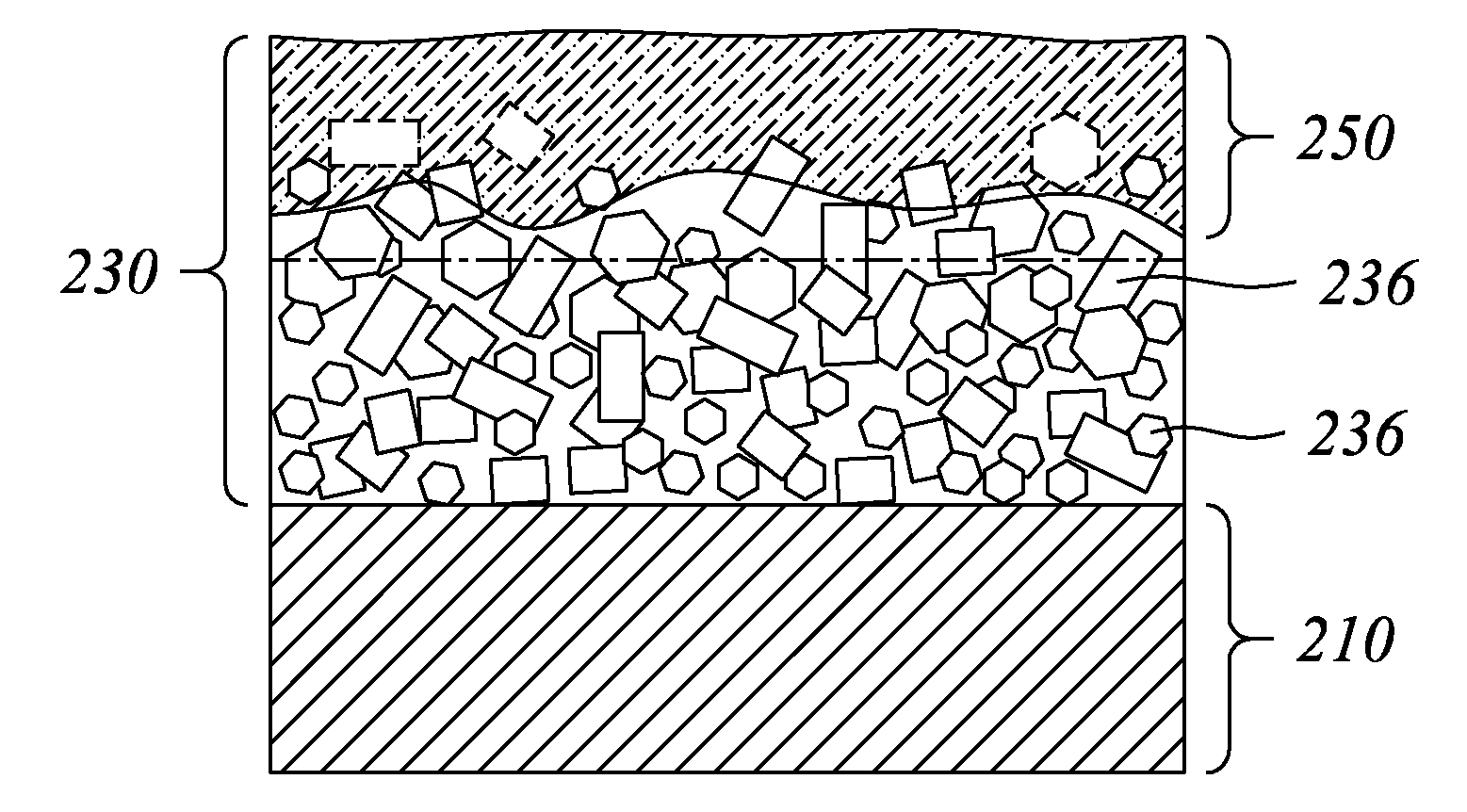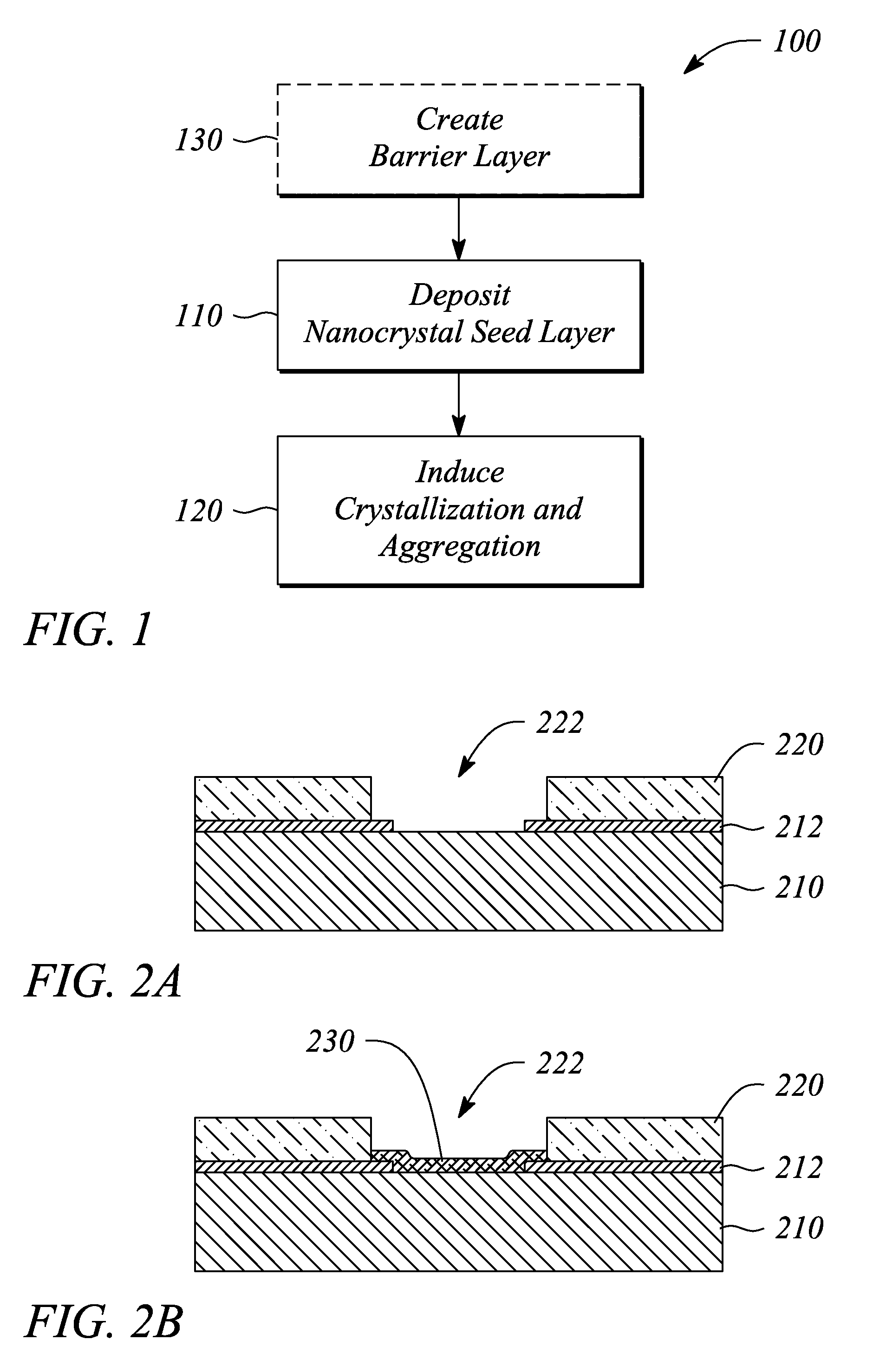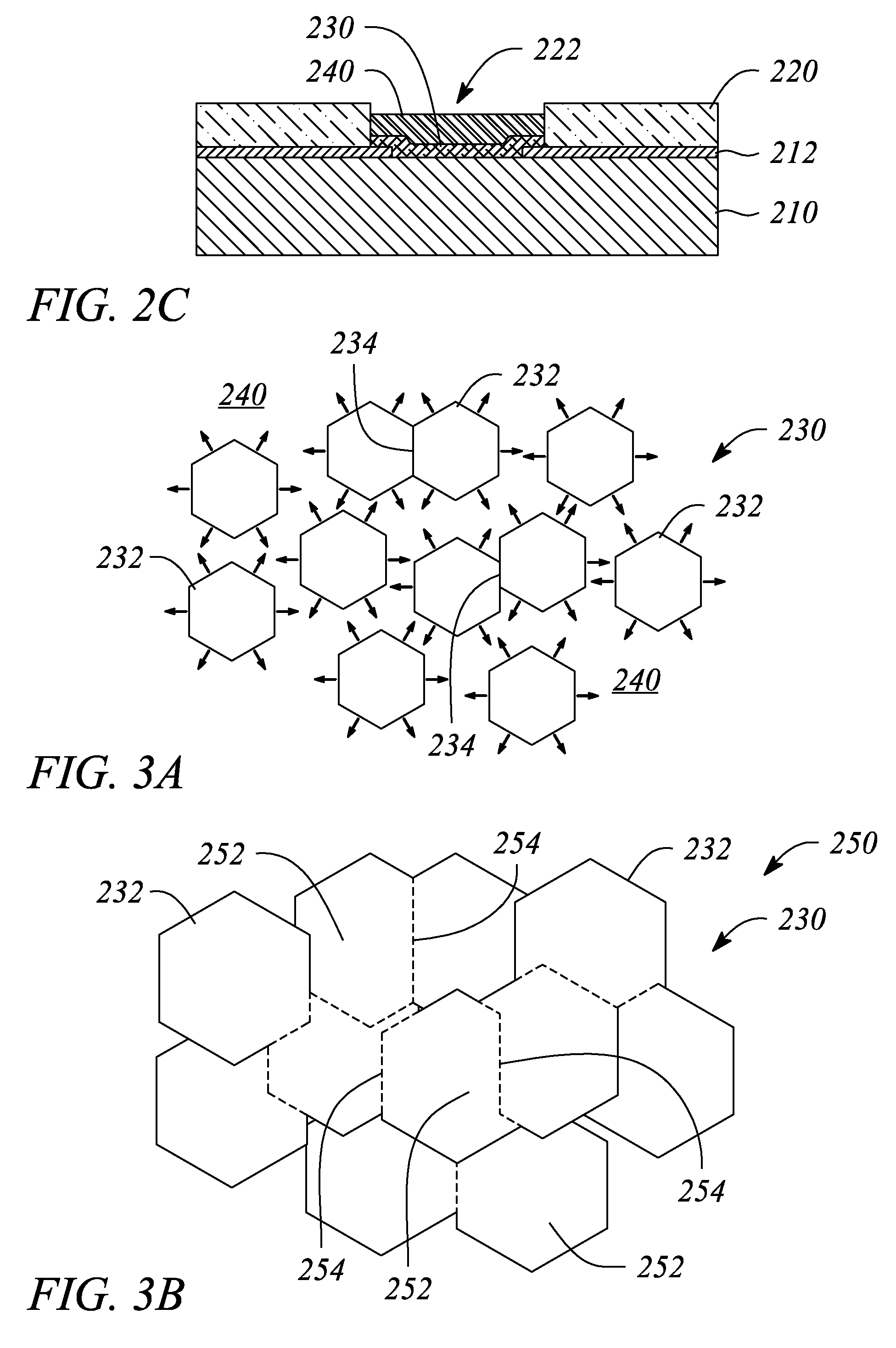Fused nanocrystal thin film semiconductor and method
a technology of nanocrystals and semiconductors, applied in the field of nanotechnology, can solve the problems of prohibitive equipment costs for providing high vacuum to process very large substrates, limiting the material choice and ultimate size of substrates,
- Summary
- Abstract
- Description
- Claims
- Application Information
AI Technical Summary
Benefits of technology
Problems solved by technology
Method used
Image
Examples
Embodiment Construction
[0022]Embodiments of the present invention facilitate producing an inorganic thin film semiconductor component. For example, the inorganic thin film semiconductor component may be a channel of an enhancement mode thin film transistor (TFT). In some embodiments, the inorganic thin film semiconductor component comprises a metal-oxide semiconductor. Exemplary enhancement mode zinc oxide (ZnO) TFTs manufactured according to the present invention have exhibited high carrier mobility of approximately 100 centimeter squared per volt-second (cm2V−1s−1), high On / Off ratios of approximately 107 and low subthreshold slope performance of about 2 volts per decade (V / decade). The performance of the exemplary TFTs generally exceeds that of TFTs based on organic semiconductors as well as those that employ either an amorphous or a polycrystalline thin film semiconductor component.
[0023]According to the present invention, fabrication of the inorganic thin film semiconductor component employs a liquid...
PUM
| Property | Measurement | Unit |
|---|---|---|
| temperatures | aaaaa | aaaaa |
| temperatures | aaaaa | aaaaa |
| thickness | aaaaa | aaaaa |
Abstract
Description
Claims
Application Information
 Login to View More
Login to View More - R&D
- Intellectual Property
- Life Sciences
- Materials
- Tech Scout
- Unparalleled Data Quality
- Higher Quality Content
- 60% Fewer Hallucinations
Browse by: Latest US Patents, China's latest patents, Technical Efficacy Thesaurus, Application Domain, Technology Topic, Popular Technical Reports.
© 2025 PatSnap. All rights reserved.Legal|Privacy policy|Modern Slavery Act Transparency Statement|Sitemap|About US| Contact US: help@patsnap.com



